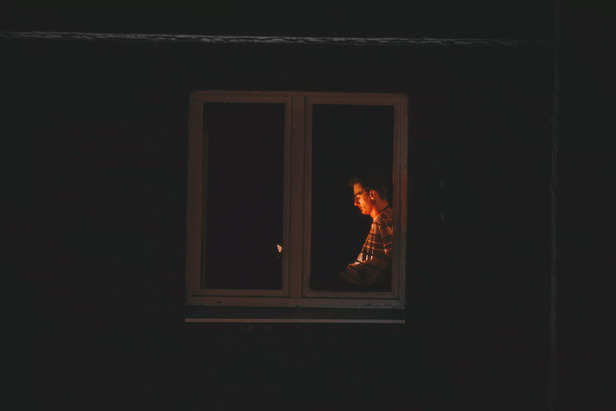How to Make the Right Decisions in Life – Bhagavad Gita Explains
Riya Kumari | Feb 12, 2025, 23:53 IST
( Image credit : Timeslife )
The Bhagavad Gita, one of the most profound philosophical texts ever written, doesn’t just acknowledge this struggle—it solves it. It doesn’t hand out easy answers, but it gives something far better: a way to think. A way to approach decisions that isn’t driven by fear, doubt, or fleeting emotions, but by wisdom, clarity, and purpose.
Life is a series of choices. Some are small—tea or coffee, left or right, reply or ignore. Others shape everything—stay or leave, fight or surrender, follow the crowd or carve your own path. And if we’re being honest, most of us spend an absurd amount of time stuck between two doors, terrified of picking the wrong one.
1. The Right Decision Isn’t Always the Comfortable One

When Arjuna stood on the battlefield of Kurukshetra, he wasn’t just facing an army. He was facing a choice: do what was difficult but right, or retreat into what felt safe. And like most of us when faced with hard decisions, his instinct was to avoid the fight.
Krishna’s response was clear: Running from what is hard doesn’t make it go away. Choosing comfort over duty isn’t wisdom—it’s fear wearing a disguise.
And isn’t that the core of so many of our dilemmas? We know what needs to be done, but we hesitate because it’s uncomfortable. We stay in jobs that drain us, relationships that no longer nurture us, routines that keep us stagnant—because change is hard.
The Gita reminds us: The right path isn’t always the easy one. And the easy one isn’t always right.
2. Don’t Let Emotions Make Your Choices for You

Arjuna’s breakdown was real. He was torn between love for his family and duty as a warrior. He saw the battle only through his emotions, and it paralyzed him.
Krishna’s advice? Do not let your emotions dictate your decisions. Feel them, acknowledge them, but don’t make choices solely based on them.
This doesn’t mean emotions are bad. It means they’re temporary. Fear fades. Excitement cools. Anger subsides. If you decide based on what you feel right now, you risk making a choice that your future self won’t stand by.
So before you act, pause. Step back. Ask yourself: If I strip away the fear, the guilt, the impulse—what is the right thing to do?
3. Control What You Can, Surrender What You Can’t

One of the most powerful lessons of the Gita is also the simplest: You have control over your actions, but not the results.
You can study relentlessly, but you can’t control the exam questions.
You can love with all your heart, but you can’t dictate how someone loves you back.
You can make the best decision with the information you have, but you can’t guarantee how it will turn out.
This is where most people get stuck. They want guarantees before they act. They want to know for certain that if they take the leap, they won’t fall. But the Gita says: Do what is right, not because of the outcome, but in spite of it.
Detach from the need for results. Make the best choice you can, and let go of the rest.
4. Fear of Making the Wrong Choice? Make It Anyway

If you’re waiting for absolute certainty before making a decision, you’ll spend your life waiting.
What if I fail?
What if it’s not the right path?
What if I regret it?
Krishna’s answer: Then you learn, and you keep moving.
No decision is wasted if it teaches you something. No step is useless if it moves you forward in any way. Even when you take a wrong turn, the journey doesn’t end—it simply takes a new shape.
The biggest mistake isn’t making the wrong decision. It’s making no decision at all.
The Wisdom to Carry Forward
The Bhagavad Gita doesn’t promise a life without dilemmas. It doesn’t offer a foolproof formula for always making the perfect choice. But it gives us something better—a mindset that allows us to walk through uncertainty with clarity and courage.
Choose what is right, not what is easy.
Let emotions inform you, but not control you.
Act without obsessing over results.
Trust that even mistakes will take you somewhere meaningful.
Life will keep asking you to choose. And when it does, don’t freeze in fear. Don’t wait for a sign. Don’t outsource your decisions to fate or other people.
Decide. Walk forward. And let the rest unfold.
1. The Right Decision Isn’t Always the Comfortable One

Right
( Image credit : Pexels )
When Arjuna stood on the battlefield of Kurukshetra, he wasn’t just facing an army. He was facing a choice: do what was difficult but right, or retreat into what felt safe. And like most of us when faced with hard decisions, his instinct was to avoid the fight.
Krishna’s response was clear: Running from what is hard doesn’t make it go away. Choosing comfort over duty isn’t wisdom—it’s fear wearing a disguise.
And isn’t that the core of so many of our dilemmas? We know what needs to be done, but we hesitate because it’s uncomfortable. We stay in jobs that drain us, relationships that no longer nurture us, routines that keep us stagnant—because change is hard.
The Gita reminds us: The right path isn’t always the easy one. And the easy one isn’t always right.
2. Don’t Let Emotions Make Your Choices for You

Think
( Image credit : Pexels )
Arjuna’s breakdown was real. He was torn between love for his family and duty as a warrior. He saw the battle only through his emotions, and it paralyzed him.
Krishna’s advice? Do not let your emotions dictate your decisions. Feel them, acknowledge them, but don’t make choices solely based on them.
This doesn’t mean emotions are bad. It means they’re temporary. Fear fades. Excitement cools. Anger subsides. If you decide based on what you feel right now, you risk making a choice that your future self won’t stand by.
So before you act, pause. Step back. Ask yourself: If I strip away the fear, the guilt, the impulse—what is the right thing to do?
3. Control What You Can, Surrender What You Can’t

Late night study
( Image credit : Pexels )
One of the most powerful lessons of the Gita is also the simplest: You have control over your actions, but not the results.
You can study relentlessly, but you can’t control the exam questions.
You can love with all your heart, but you can’t dictate how someone loves you back.
You can make the best decision with the information you have, but you can’t guarantee how it will turn out.
This is where most people get stuck. They want guarantees before they act. They want to know for certain that if they take the leap, they won’t fall. But the Gita says: Do what is right, not because of the outcome, but in spite of it.
Detach from the need for results. Make the best choice you can, and let go of the rest.
4. Fear of Making the Wrong Choice? Make It Anyway

Speech
( Image credit : Pexels )
If you’re waiting for absolute certainty before making a decision, you’ll spend your life waiting.
What if I fail?
What if it’s not the right path?
What if I regret it?
Krishna’s answer: Then you learn, and you keep moving.
No decision is wasted if it teaches you something. No step is useless if it moves you forward in any way. Even when you take a wrong turn, the journey doesn’t end—it simply takes a new shape.
The biggest mistake isn’t making the wrong decision. It’s making no decision at all.
The Wisdom to Carry Forward
Choose what is right, not what is easy.
Let emotions inform you, but not control you.
Act without obsessing over results.
Trust that even mistakes will take you somewhere meaningful.
Life will keep asking you to choose. And when it does, don’t freeze in fear. Don’t wait for a sign. Don’t outsource your decisions to fate or other people.
Decide. Walk forward. And let the rest unfold.
